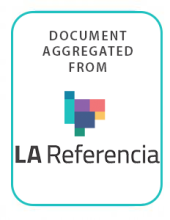Land Library
Welcome to the Land Portal Library. Explore our vast collection of open-access resources (over 74,000) including reports, journal articles, research papers, peer-reviewed publications, legal documents, videos and much more.
/ library resources
Showing items 1 through 9 of 40.The Mekong Region Land Governance (MRLG) project and the Forestry Department of the Ministry of Natural Resources and Environmental Conservation (MONREC) co-hosted the “Mekong Region Customary Tenure Workshop” on 7-9 March 2017 in Nay Pyi Taw, Myanmar.
Summary report of Mekong Region Land Governance (MRLG)'s online dialogue on 'Recognition of Customary Tenure in the Mekong Region' held in 2017, containing justification for the dialogue, key take-aways, next steps and recommended resources, published by MRLG in 2017.
Una de las principales demandas de los pueblos indígenas es el reconocimiento y seguridad jurídica de sus territorios.
Resumen La violencia armada en Colombia obliga a las personas a abandonar su territorio para salvaguardar la vida.
Con la anexión de las provincias de Arica y Tarapacá a Chile, los aymaras del altiplano debieron inscribir el dominio de sus tierras en los archivos conservadores de la propiedad, de acuerdo con el sistema jurídico del país, situación que otorga a estos registros documentales un papel importante
This paper describes the current challenges Myanmar faces to shift to a system more inclusive of multiple interest groups. The authors provide background on the situation in Myanmar and its past levels of performance.
A letter from the Prime Minister dated 16 January 2008, and cited in the Constitution Court Ruling No 15/2552, in defense of the Community Forest Bill shows how “community rights” are often seen as contingent upon the responsibility of the communities to take care of the forest.
Conflict over land, combined with the systematic violation of land rights, is one of the most prominent human rights problems faced by Cambodians. The root of this problem can be traced back to the abolition of private ownership by the Khmer Rouge in 1975.
This article argues that there is a transformation in the relationship between land, peasant communities and its members or comuneros.


